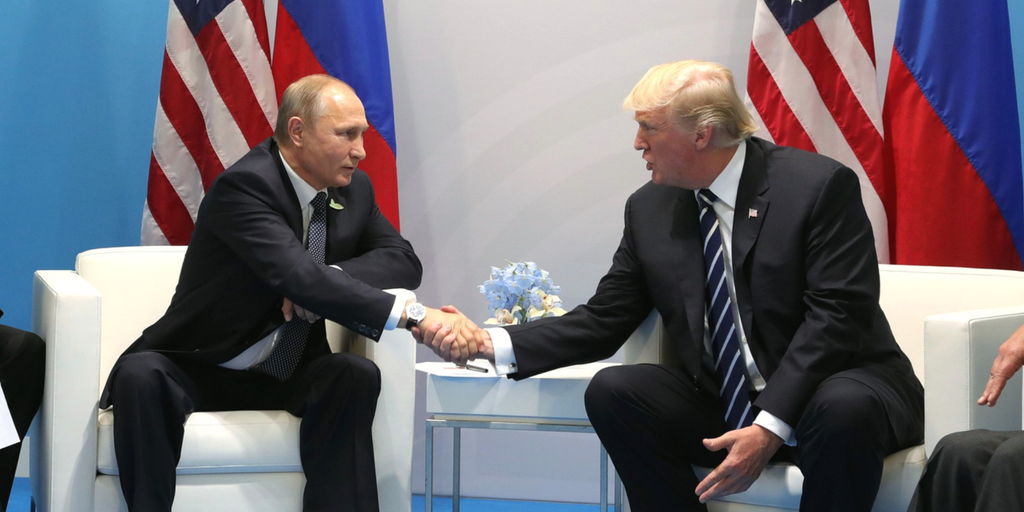In Helsinki, Putin Can Grant Trump Great Success, of Sorts
The July 16, 2018, face-to-face between President Trump and Russian President Vladimir Putin is both entirely natural and extremely unconventional, very encouraging and deeply disturbing.

At the two previous meetings, in Hamburg and Danang, the two leaders had a lot to talk about—and they agreed on approximately nothing. There have been all sorts of variably informed speculations about the agenda, proceedings, and outcome of the upcoming rendezvous, but most appear to miss the point that Putin is interested in making it a success for his counterpart, and can do so at very little cost. Whether the NATO summit in Brussels prior to the Helsinki meeting is as quarrelsome as the G-7 gathering in Quebec or as smooth as the previous summit of the Alliance, Putin can stick to his script of insincere bonhomie. He knows full well that Trump needs this long-anticipated tête-à-tête to be a personal triumph of his will over the warnings—sometimes written in capital letters—of his advisers, the so-called “adults.” For a skillful intriguer like Putin, it is not that difficult to turn this desire for success to his advantage.
Read the full article on Brookings: In Helsinki, Putin Can Grant Trump Great Success, of Sorts

Available in:
Regions and themes
Share
Related centers and programs
Discover our other research centers and programsFind out more
Discover all our analysesThe Caspian Sea as an Emerging Energy Hub : Potentials and Limitations
This report analyzes the prospects of the Caspian Sea region — and its key actors except for Russia and Iran — becoming an important energy hub serving the needs of the European Union (EU).
The European Union's Strategic Test in Georgia
The political crisis brewing in Georgia is of an existential nature for the country. What is at stake is Georgia's future as a democratic and sovereign European nation (EU).
Commanders of Putin's Long War: Purged, Reshuffled and Disgruntled
The trend of reshuffling the Russian top military command in the course of a fast-evolving and far from successful war has progressed unevenly both across the Armed Forces’ structures and in time. The rationale for and timing of the abrupt cadre decisions made by Commander-in-Chief Putin often defy logical explanation, and the rare official clarifications are no more informative than the usual information blackout.
Russian Military Manpower After Two and a Half Years of War in Ukraine
In addition to a military victory in Ukraine, the Russian leadership is planning to build up sizable troop formations for a possible conflict with NATO in the Baltic region and the Kola Peninsula. In particular, current plans aim for the military manpower to grow by about 350,000, reaching a total of 1.5 million soldiers and commanders. In the context of the current conflict in Ukraine, this cannot be accomplished without a new wave of mass mobilization.










